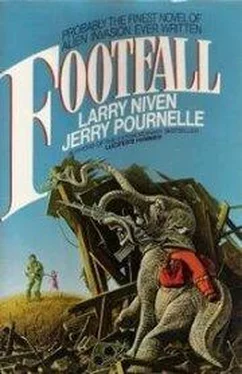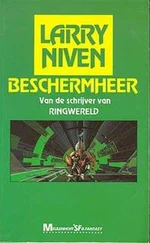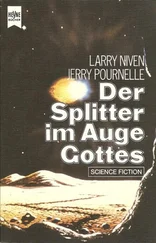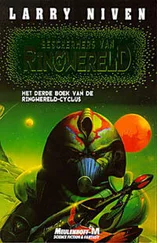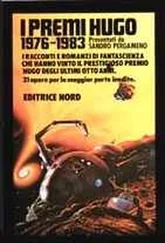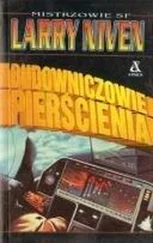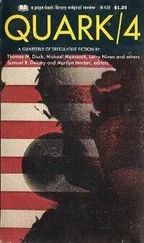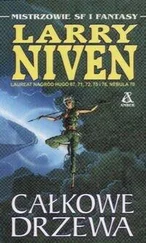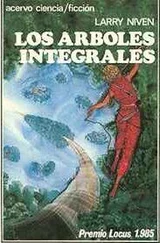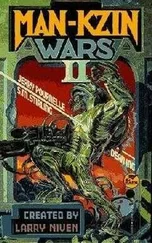It would be difficult to shake hands in zero gravity, and Wes didn’t try. The airlock door opened again, to admit Captain Greeley. The legless cosmonaut went to help remove his helmet. Rogachev was already leading the way down the corridor, and Wes had no choice but to follow.
“In here,” Rogachev said. “Mitya will aid you with your suit. He will then show you where we will await you.” His tone changed. “Nikolai.”
“I come,” the legless man said, and launched himself after Rogachev.
The compartment Vies was led into was small, but larger than he had expected. It had some gravity; hardly enough to notice, but sufficient that objects settled to one deck, and Wes could lie on that deck to allow his suit to be removed.
Mitya did not look like the others. He was small, almost tiny, and his face was very oriental, almost pure Tatar. He talked constantly as he assisted Dawson in getting out of the pressure Suit. Vies couldn’t understand a word, although Mitya seemed to understand English.
When they had the pressure suit off, Mitya produced a pair of dark blue coveralls. On the left breast was the name DAWS0N, in both Roman and Cyrillic letters. There was also a patch, with the stylized hammer-shaped symbol of Kosmograd. The station’s image was marked with a Red Star and the Soviet CCCP.
That’s why they said I needn’t bring my own clothes. They want me in their uniform. Vies grinned and reached inside his suit. There was a small pouch there. Vies took out a bright U.S. flag pin, and pinned that above the Kosmograd patch. Then he looked directly at Mitya.
The Soviet was grinning. He said something incomprehensible, then waited for Wes to put on the coveralls.
Sergeant Ben Mailey was accustomed to shepherding VIPs, but he’d never seen a group quite like this one. Idly he listened to the chatter behind him. They’d put five passengers in a helicopter built for many more. The trip from the Colorado Springs airfield to Cheyenne Mountain wasn’t very long. Civilians were talkative anyway, but they rarely tried to compete with the roar of a helicopter motor. These were winning; though half of what they said didn’t make sense.
He had his share of tall this trip. Sergeant Mailey tended to notice that. Five feet five, wide and round, he dreaded what he would look like without the Army exercises they made him take. You’d want to roll him down a bowling alley. But three of his passengers were six feet or taller, and two of those were women. He glanced at the passenger list. That tall man playing tour
guide was Curtis, of Hollywood, California. It was easy enough to hear him, even over the helicopter motors. “That’s the Broadmoor Hotel. One of the world’s top hotels, and not built because of the Air Force Academy or NORAD or anything else. Remember the old Penrose machine? One of the younger sons got too rough even for that crowd, and they sent him out here about the turn of the century as a remittance man. Had nothing to do, so he built the world’s best hotel in the shadow of Pikes Peak.”
Which was interesting. Mailey had never heard that story before. Unfortunately, the guy knew more, and now he was revealing too many of the secrets of Cheyenne Mountain for Mailey’s comfort. How the hell did he ever get Inside? Because he’d sure been there.
Not that it mattered. They were all going inside, and maybe it wouldn’t be so easy to get out again…
Four of them had come in pairs, but the dark-haired woman had come alone, If you’d put her in Playboy — she was that pretty — you’d have had to use the centerfold. She was that tall. When Curtis shut up she said, “What I meant is, we ought to be the ones to greet the aliens!”
“Maybe we will. But, Sherry, Wes Dawson’s up there, and he’s a science-fiction fan. I mean serious. He was at the first Saturn flyby. You were there. Don’t you remember him? Congressional candidate in a baseball cap.”
“No.”
“Well, he was watching the screens instead of making speeches. That any help?’
“I—”
“In the meantime, if you were a government, who would you get to tell you about aliens? Us! I’d like to know who thought of it.”
The silver-haired woman’s laugh was a pleasant silvery tinkle. Her husband wasn’t in uniform, but from the ID he’d shown Mailey he could have bean, although it would make him the oldest lieutenant in the Navy. He had a head like a bullet and a mustache like a razor’s edge. The sheet on Mailey’s clipboard named them:
Robert and Virginia Anson, Santa Cnn. They looked too old to be part of-whatever was going on here. All Mailey was sure of was that there was a direct order from the President concerning this new advisory group, and Mailey had never seen anything like that before.
They were to report directly to the National Security Council. Not even to General Deighton, who commanded NORAD and had taken up residence inside.
Anson leaned forward in his chair, and Mailey noticed that the others stopped talking and turned toward him. “We’ll see enough,” he said.
“Sure,” one of the others said. “Bob, we trust hell out of you, but can’t you tell us what we’re doing here?”
“Ten minutes.” Anson looked up at Mailey. “That’s about how long it will take to get inside?”
Mailey nodded “Yes, sir.” Another one who’d been in the hole. They had that distinctive way of pronouncing the word. Inside. If you’d been there, you knew.
“Anyway,” Anson said, “we’ll learn as much, and as quickly, as anyone in the United States. Admiral Carrell assured me of that.”
The grins on the others were unmistakable, although some of the wives didn’t seem so happy about it.
“Sounds good,” someone said. “And an audience that wants to be told what to do, and can do it! Who could ask for more?”
Virginia Anson laughed in silver. Robert Anson leaned forward again, and again everyone else fell silent. I’ve seen generals get less respect than that, Mailey thought.
“What have you done with Nat Reynolds?” Anson asked Curtis. “I thought you two went everywhere together.”
“We have since his divorce,” Curtis said. “But he’s got a convention in Kansas. Yeah, I thought of that too, but where is he safe?”
He’d be safe Inside, Mailey thought. If there’s one safe place in the world, this is it.
The motors changed pitch and the helicopter descended.
Jenny watched the group climb out of the helicopter, and hid her misgivings. She got the passengers loaded into the station wagon for the short drive from the helipad to the entrance.
She’d only been Inside a few times, and it was still an awesome experience. The station wagon drove through doors the size of a house, then on into the mountain — And on, and on. Eventually it stopped and they entered an
elevator that had no difficulty holding all of them, with room for the station wagon if they’d wanted it.
No one was talking much. People didn’t, the first time.
The buildings sat on coil springs as tall as people. Except for the springs, and the granite walls overhead and everywhere, the buildings might have been standard military barracks and offices.
Jenny gave them an hour to get settled. Most of them were in the briefing room in half that time. She waited the full hour. The inside of the conference room was set up like a movie theater, with folding chairs in rows. Army men ushered them to seats, a little warily, as if they didn’t quite know what to make of their guests.
The army troopers stood when she came in. So did Robert Anson, although Jenny had the impression that it wasn’t the gold leaves he stood for.
They waited while she went to the blackboard.
Then one of them said, “I suppose you’re all wondering why I’ve asked you here,” and everyone laughed. Which made it a lot easier.
Читать дальше
